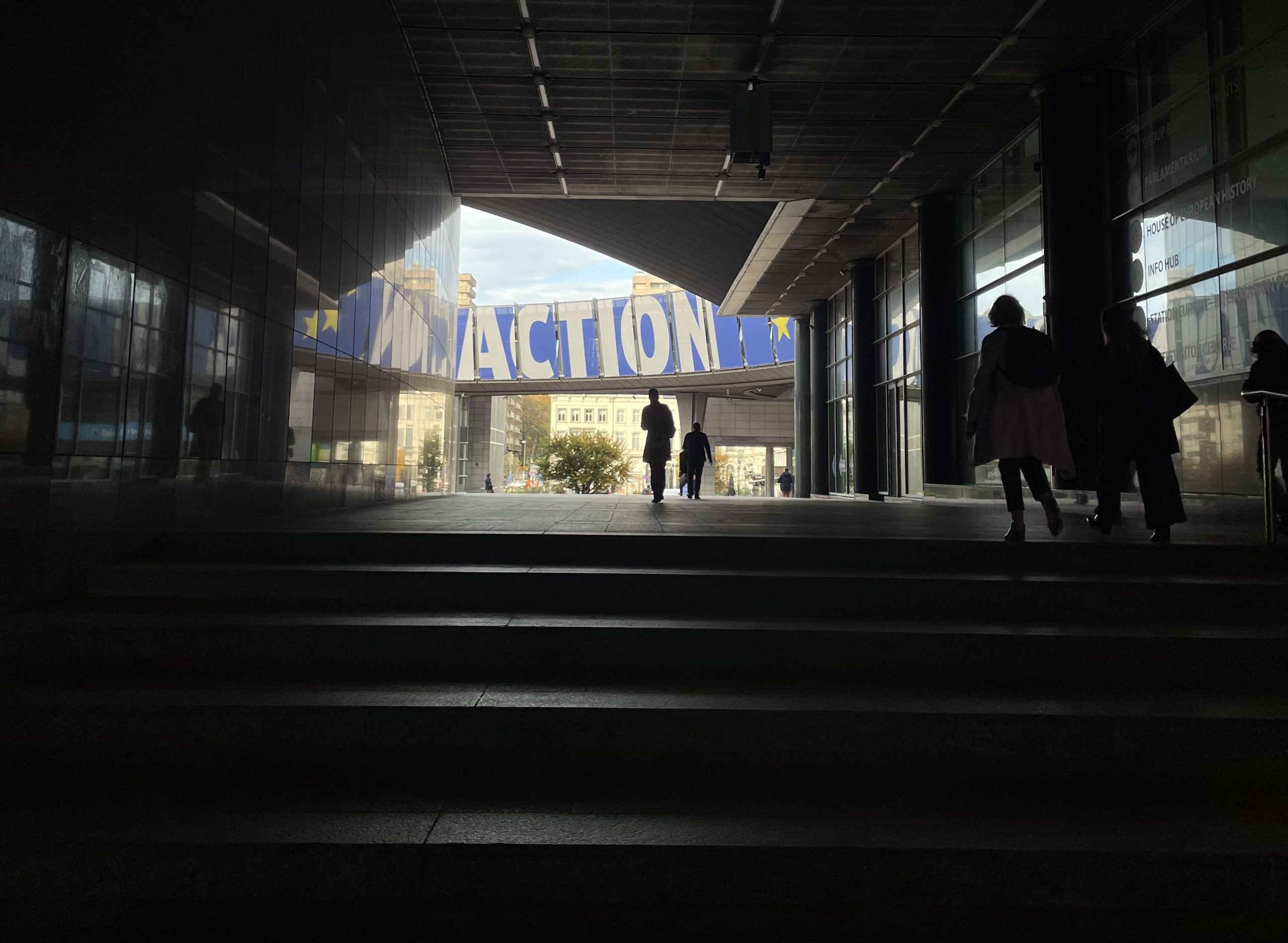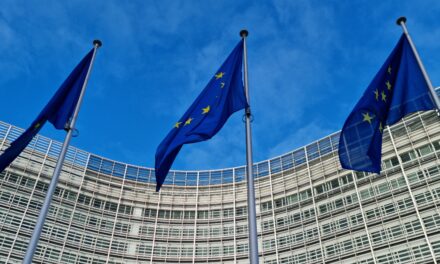
November 20 will mark exactly 500 days since the Patriots for Europe group was formed and began its work in the European Parliament. The far-right faction was initially completely isolated, but it appears that over time, it is becoming increasingly involved in parliamentary work and playing a more important role there.
By Kamilé Vaiciukevičiūtė and Freya Bjerrum
To this day, the cordon sanitaire is applied to Patriots for Europe, and other political groups still, at least officially, support this stance. “I myself remember that more than once we simply voted against when Patriots for Europe tried to put forward their candidates at the very initial stages,” says the member of Renew Europe Group, Dainius Žalimas. According to him, it is impossible to completely isolate this far-right party from power and decision-making, as the largest group in the European Parliament, the European People’s Party (EPP), makes exceptions and sometimes cooperates with them.
With the existing right-wing majority in the Parliament, Patriots for Europe itself feels the shifting stance of the European People’s Party. “We’re still excluded from formal positions. We don’t hold the vice-presidencies or committee chairmanships that our size would normally entitle us to, but in real political terms, things have changed, because EPP no longer depends on Renew Europe Group and therefore faces internal pressure to use the right-wing majority when there’s broad agreement,” comments Anders Vistisen. According to him, with the growing EPP’s willingness to cooperate with Patriots for Europe, the cordon sanitaire does not hold on in practice anymore.
Everything is in the EPP’s hands
According to a Policy Analyst at the European Policy Centre, Eric Maurice, centre-right parties like EPP are sometimes willing to accept votes from the far-right when it is helpful, even if the group won’t formally support their proposals. “For instance, the EPP might receive support from Patriots for Europe on deregulation or simplification, especially when it relates to climate and Green Deal legislation. But the EPP wouldn’t vote for texts proposed by the far-right, as seen in the motion of censure against Ursula von der Leyen. They shared some concerns but still didn’t support the motion,” he adds.
“They can say, ‘either you compromise, or we’ll find a majority with Patriots for Europe.’ That dynamic gives the far-right influence, even without being in the governing coalition,” – Eric Maurice
The policy analyst also notices that the EPP uses the threat of cooperation with the far right as leverage over its centrist partners, Renew Europe Group and the Group of the Progressive Alliance of Socialists and Democrats. “They can say, ‘either you compromise, or we’ll find a majority with Patriots for Europe.’ That dynamic gives the far-right influence, even without being in the governing coalition,” explains E. Maurice.
Indirect influence is growing
Cooperation between different political groups not only happens in plenary sessions, but also on a procedural level, such as agenda forming. And here the Patriots for Europe become more influential. “Other parties position themselves in relation to us. We’ve had significant growth, and that has clearly shaped which issues are given prominence. Migration policy is one example,” says A. Vistisen.

This influence can also be seen in drafting reports, which need a majority backing. “So even if other groups don’t take amendments directly from the far-right, they might adjust the language to make it acceptable to those groups. This means Patriots for Europe and other far-right groups can influence the tone and wording of legislation indirectly,” explains E. Maurice.
He also adds that groups like Patriots for Europe can request debates in plenary. “The framing of such debates matters. A migration debate led by Patriots for Europe starts from a completely different narrative than the one introduced by Socialists and Democrats. So, they are increasingly shaping not just policies but also the language and framing of European Union political debate,” says the Policy Analyst.
The treatment is still different
Despite gaining more influence in the European Parliament, the members of Patriots for Europe still feel like they are treated differently from other political groups. “There’s clear institutional bias. The administration itself doesn’t particularly like having right-wing parties represented, and that’s reflected in unequal treatment,” comments A. Vistisen. According to him, it is even seen in plenary sessions: “If I go a few seconds over my speaking time, my microphone is cut off immediately, while pro-European colleagues can speak 20 or 30 seconds longer without interruption.”
However, the Lithuanian correspondent in Brussels, Evaldas Labanauskas, says that he hasn’t noticed different treatment of Patriots for Europe in plenary meetings. “Almost everybody is cut off. It really depends on who the speaker is at the moment; some of them are strict, some are not. So some of them are letting the politicians finish the sentence, some are just cutting them off,” argues the journalist.
The Renew Europe member D. Žalimas also adds that while working with the Patriots for Europe as a whole is not possible, they can collaborate with individuals from this group just fine. “In the Legal Affairs Committee, for example, we have a representative of their faction, and she is quite a good lawyer. Sometimes she expresses completely rational legal arguments that are hard to argue against,” he explains.
The future of the Patriots for Europe
In E. Maurice’s opinion, this far-right group will hold as long as they stay in opposition. “Opposition is easy. You can just say no to things you dislike and support what you like. But they lack what I’d call inter-institutional strength. The EPP, for instance, is strong in the Parliament, the Commission, and the European Council, which gives them a lot of leverage. Patriots don’t have that,” he comments.
If Patriots for Europe gain more positions, it will show how flexible the cooperation between them and EPP has become,” – Eric Maurice
Even though this far-right group is better organized than the ones that came before, according to the Policy Analyst, they lack the institutional culture and experience to connect their influence across different bodies.
“An interesting upcoming test will be the midterm renewal of committee chairs and vice-presidencies. If Patriots for Europe gain more positions, it will show how flexible the cooperation between them and EPP has become,” adds E. Maurice.



